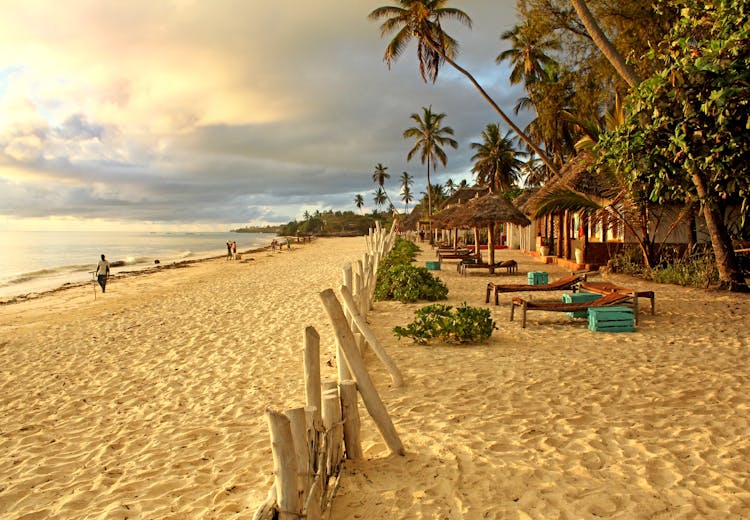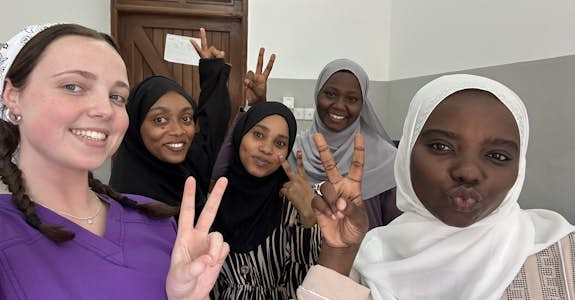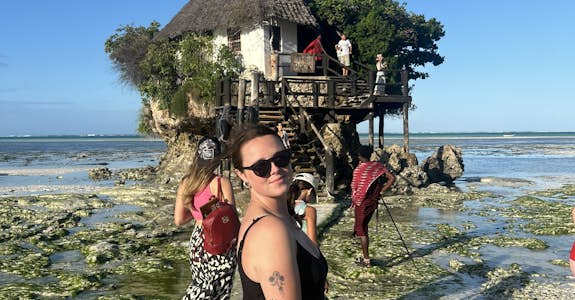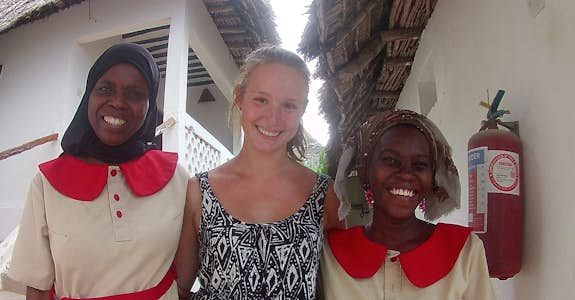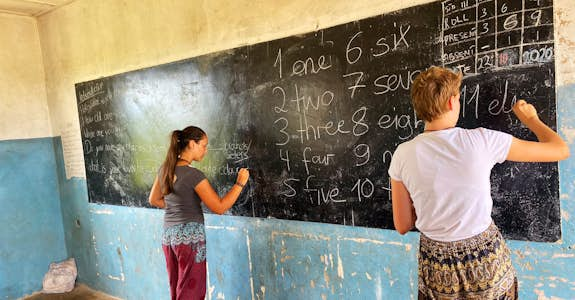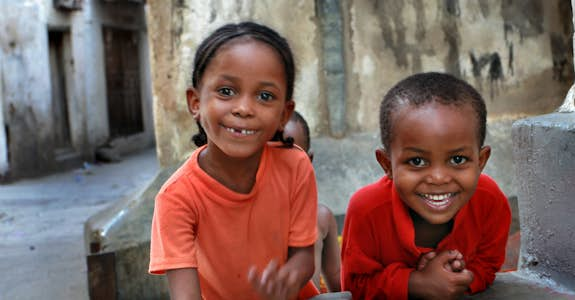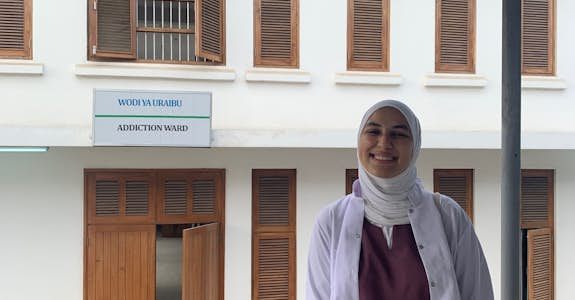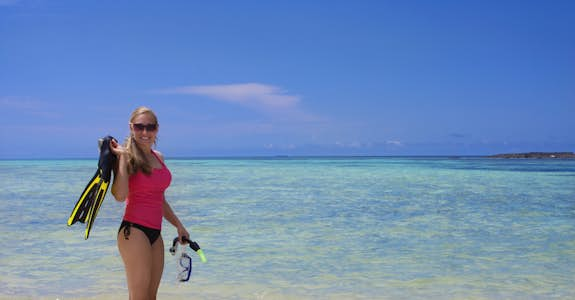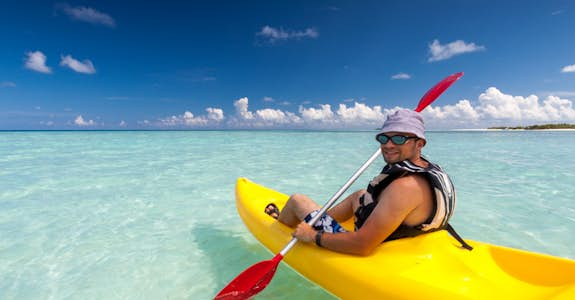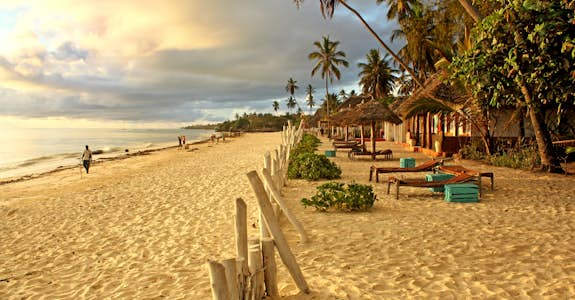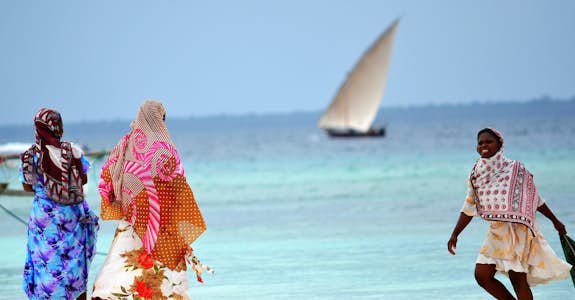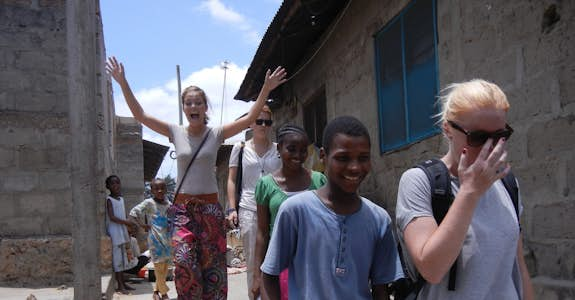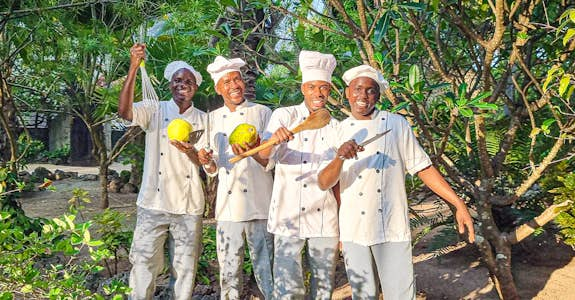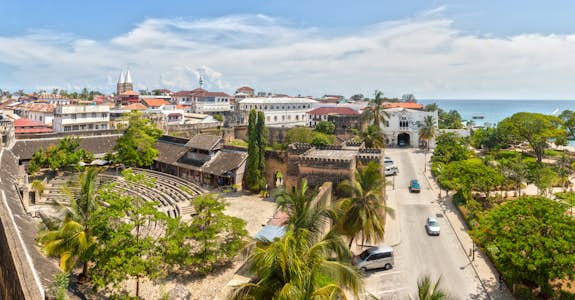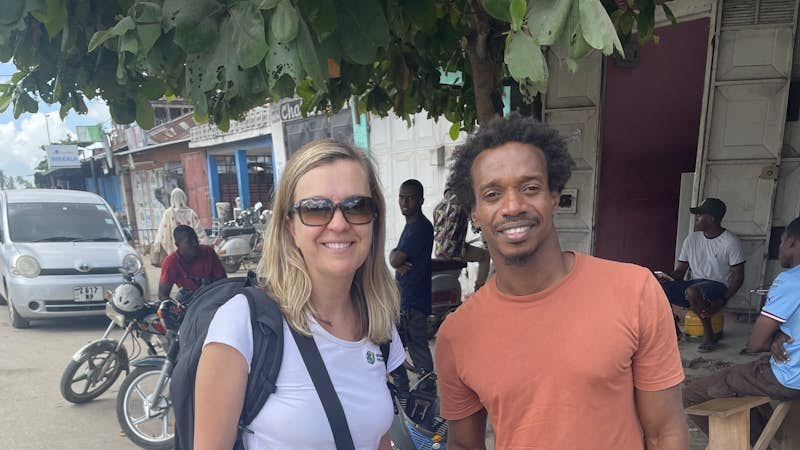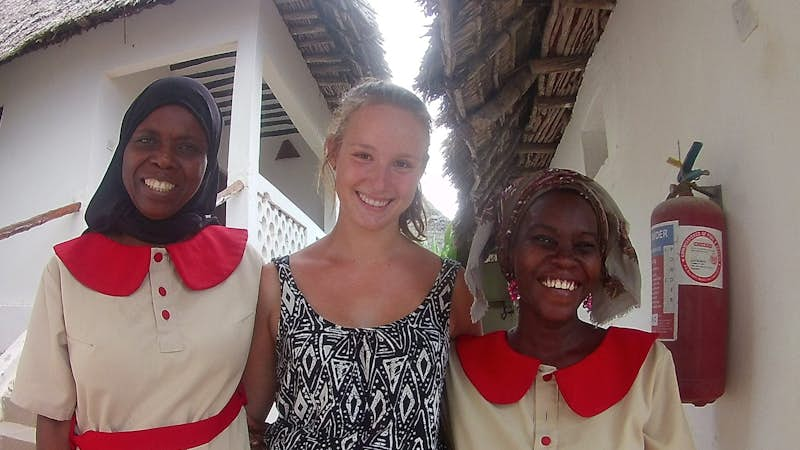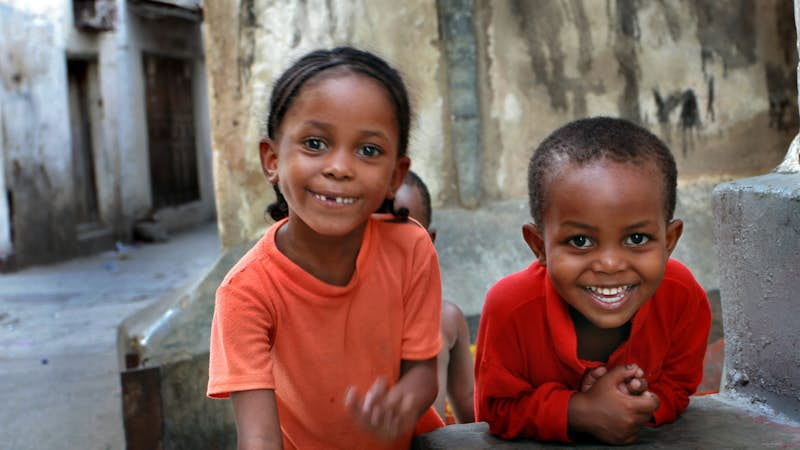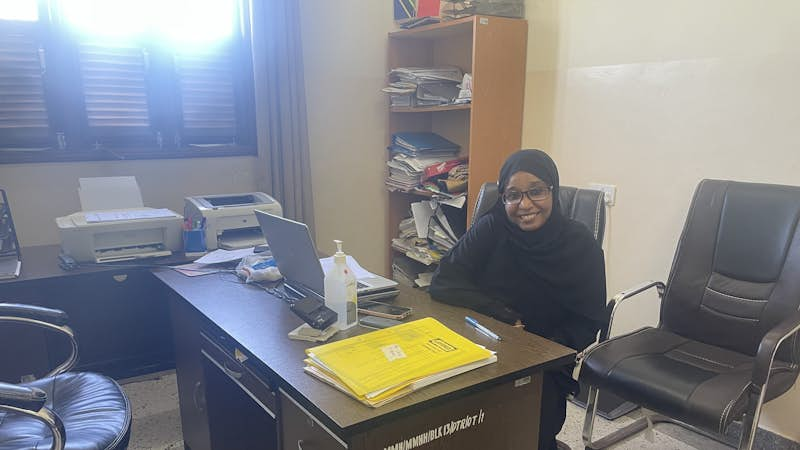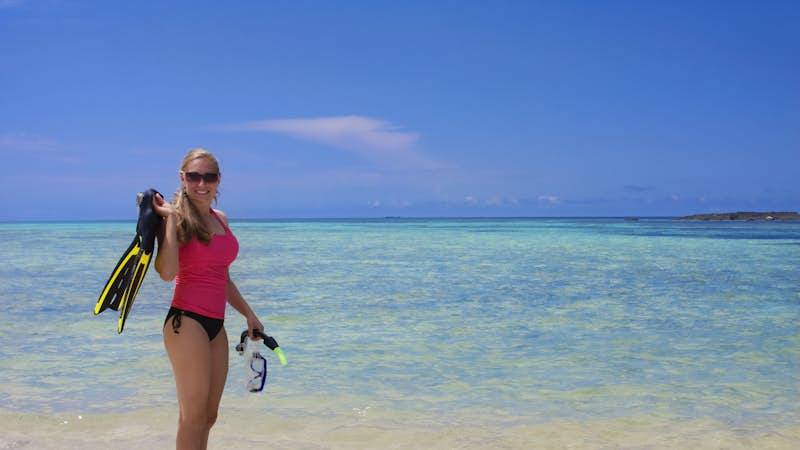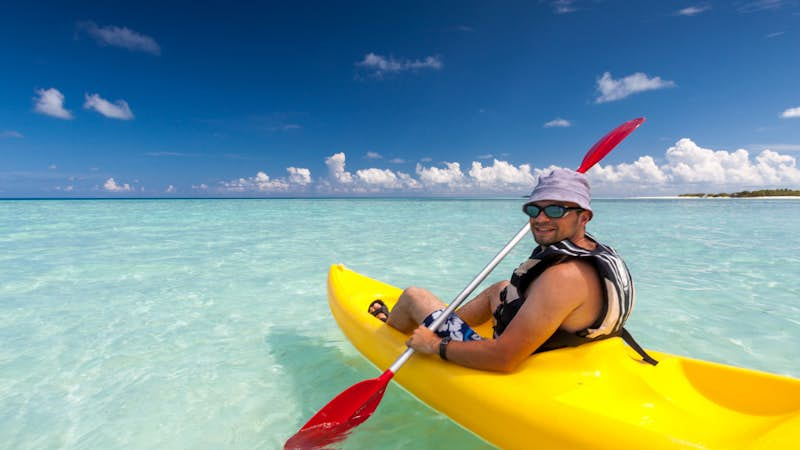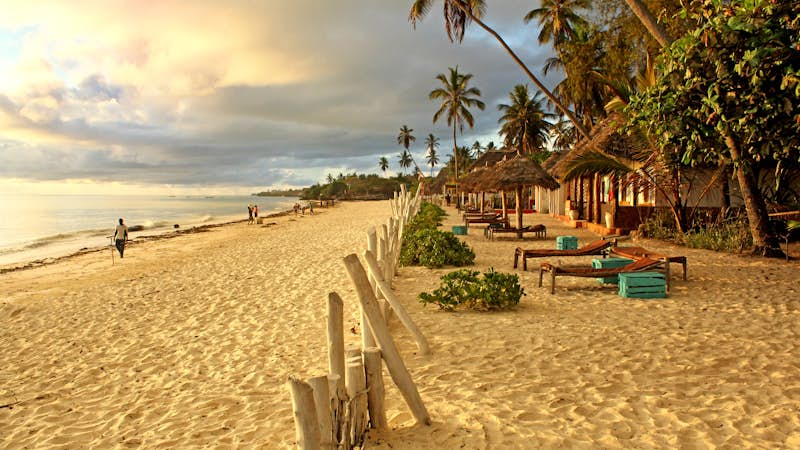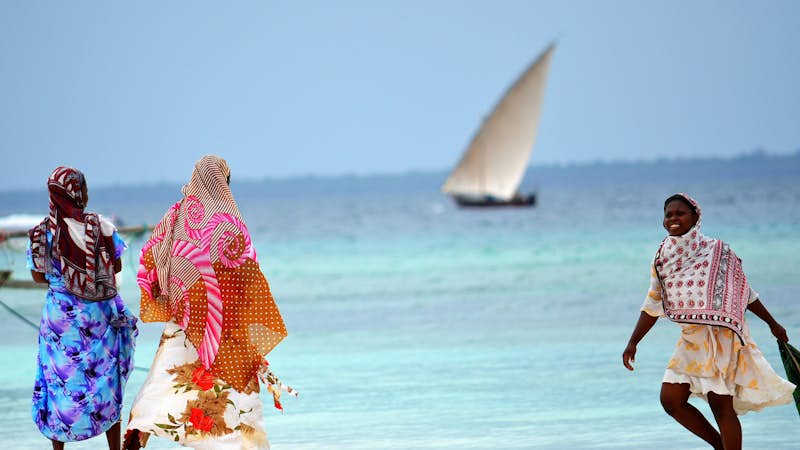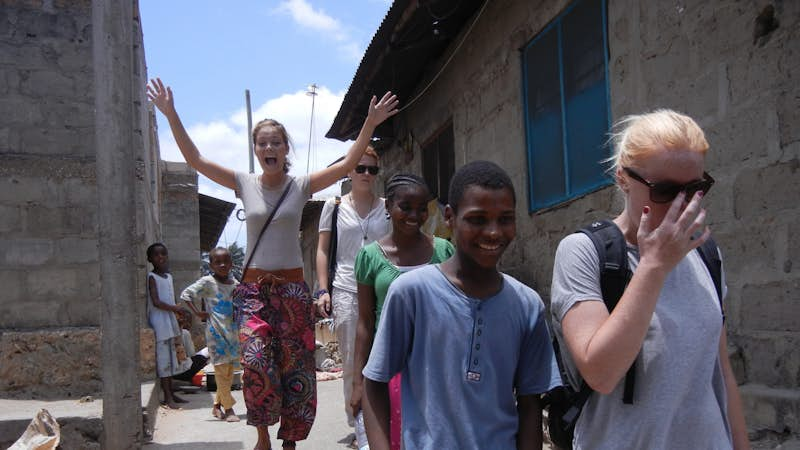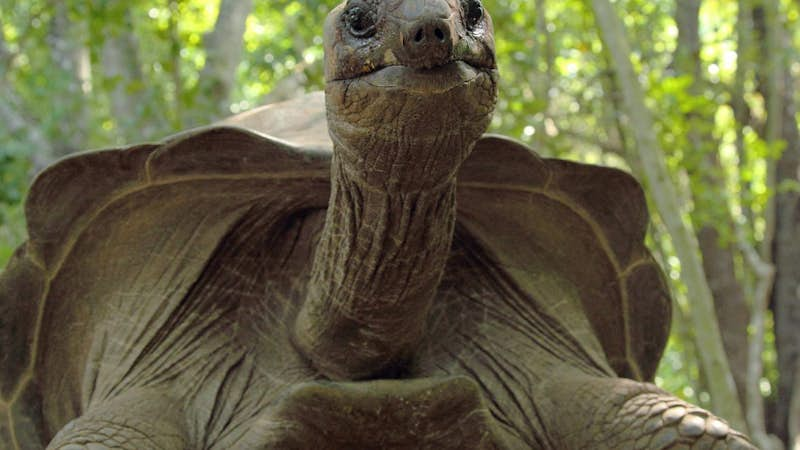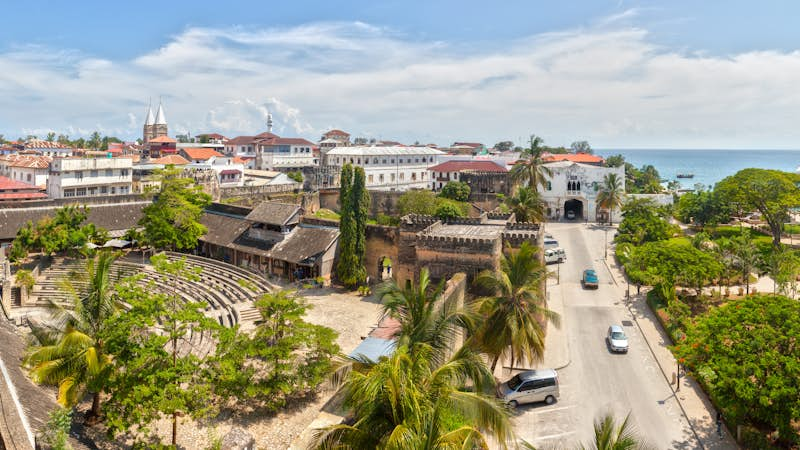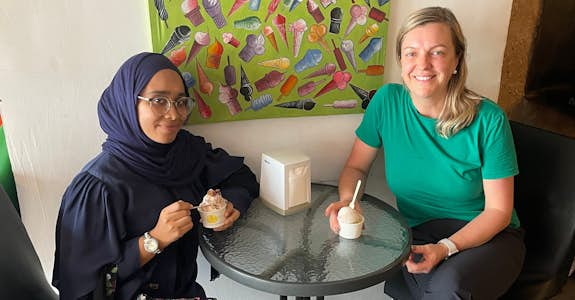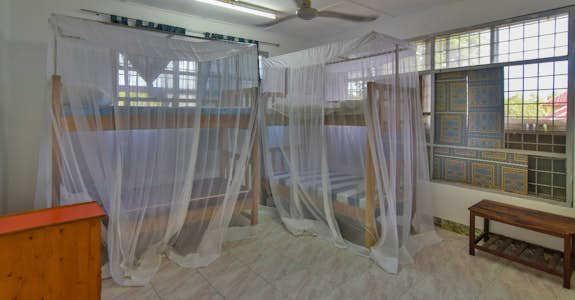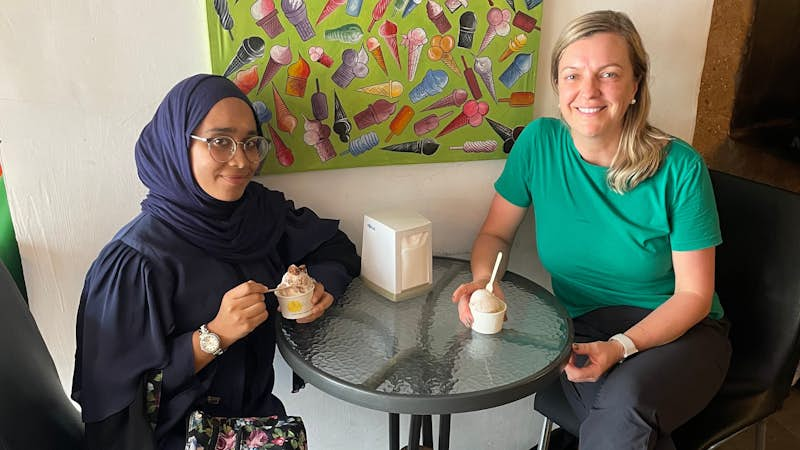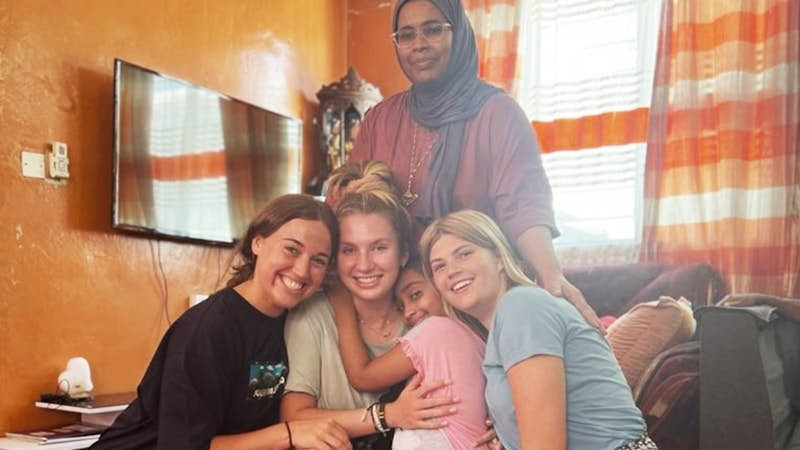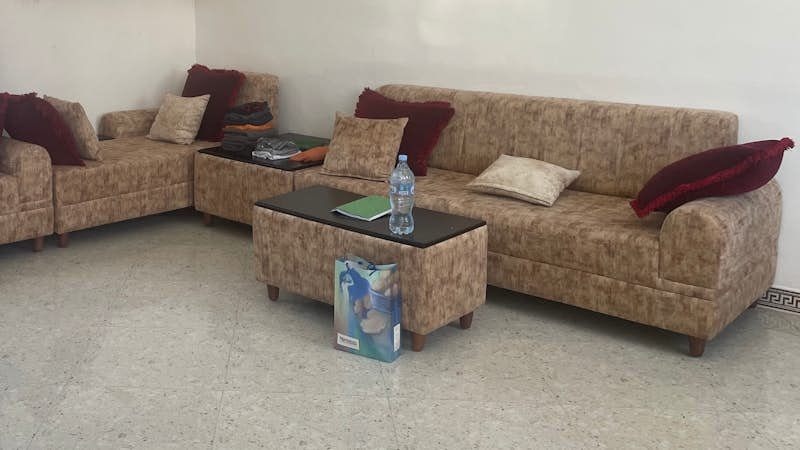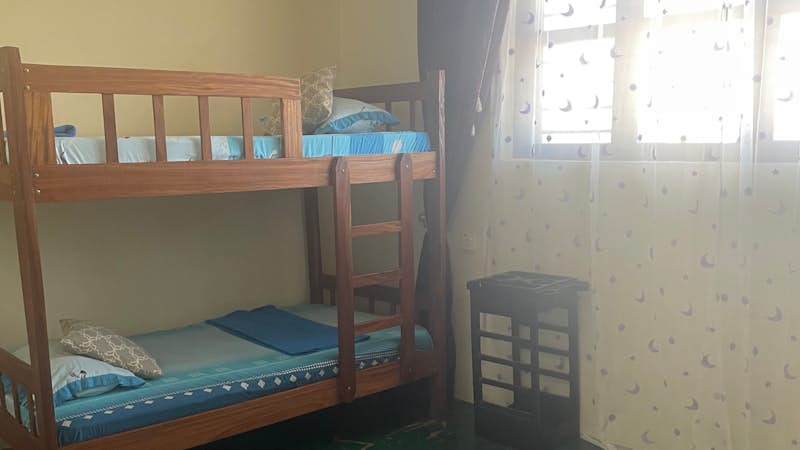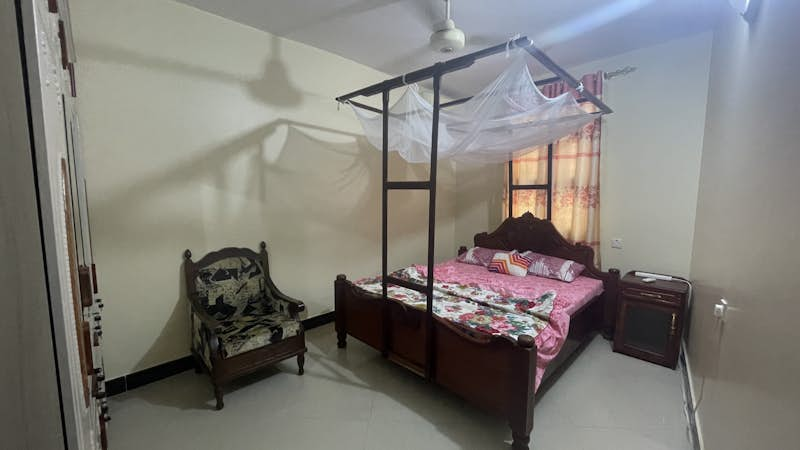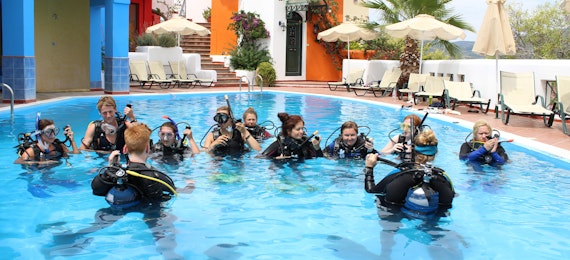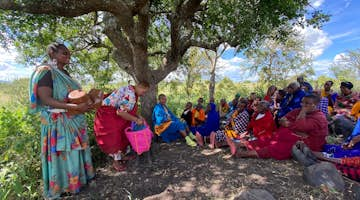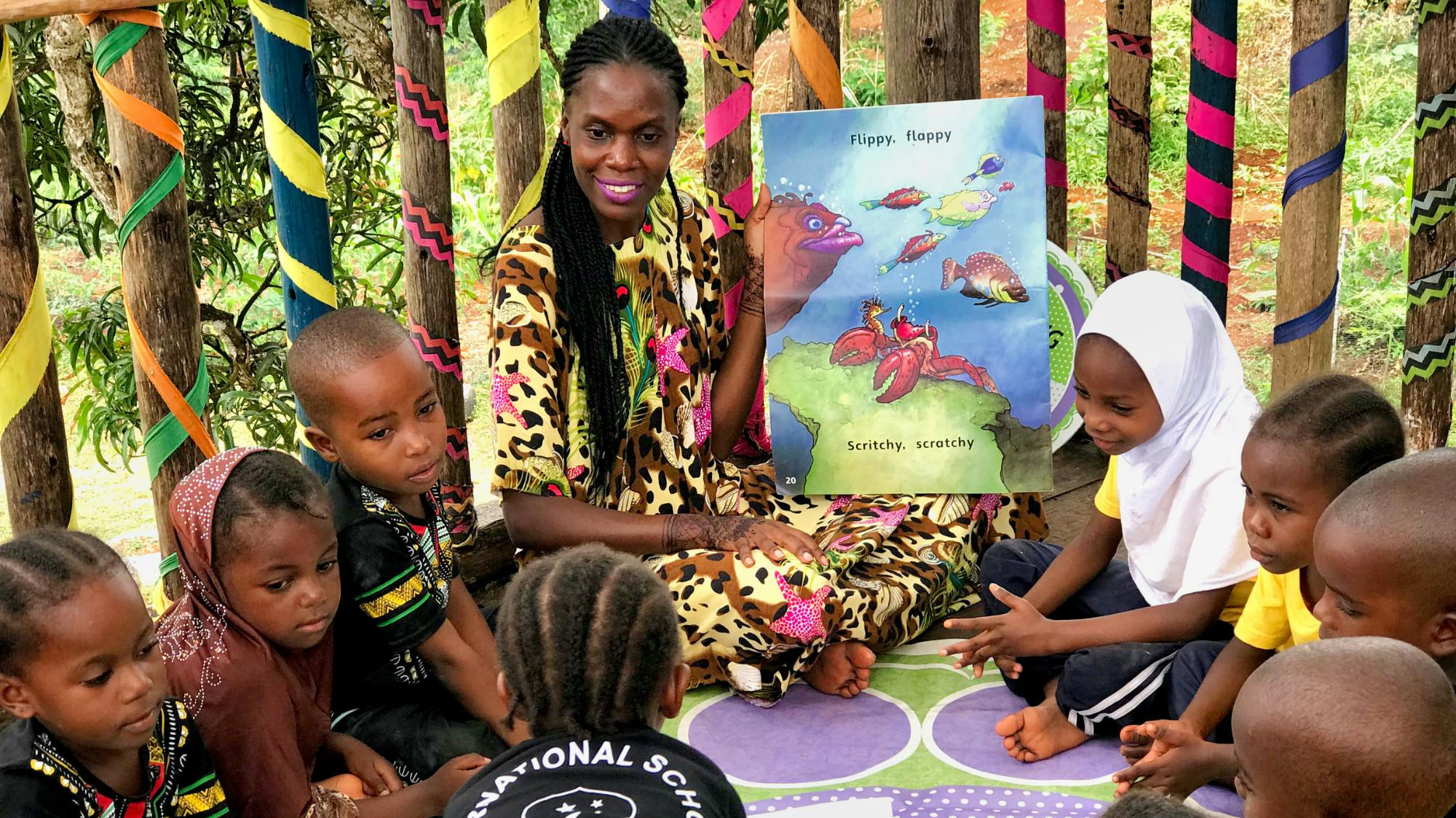
Social Work & Education Internships: Intern abroad in Zanzibar
A unique internship that helps local people of all ages through education, job training and personal development. These are highly customizable internships that cater for your skills and goals, with the opportunity to really make a difference in the lives of disadvantaged people in Zanzibar.
What to expect from your Social Work & Education internship:
- Be part of an innovative and very active NGO
- Connect with highly motivated learners from Zanzibar who are eager to learn
- Get insights into a variety of topics and activities
- Make new local and foreign friends
- Experience life on Zanzibar, a unique and beautiful African island
Your internship abroad host organization:
- Social work NGOs
- Education NGOs
Internship details
A unique internship that helps local people of all ages through education, job training and personal development. These are highly customizable internships that cater for your skills and goals, with the opportunity to really make a difference in the lives of disadvantaged people in Zanzibar.
This is an in-country internship with accommodation and meals included. Click here to view remote Psychology & Social Work internships which you can undertake from home.
Internships in Social Work and Education in Zanzibar are placed in an NGO that works with disadvantaged people in society on an array of different initiatives. This is a highly customizable internship, with a wide range of possible placements and work. No two internships are the same, as each is designed to match interns with the best placement, in the best role for their skills.
All internship placements have the common goal of helping people. They can involve education programs, teaching vocational or business skills, running sports and extracurricular activities, health workshops or exercises in social issues. Each placement works with disadvantaged people, helping them with personal and professional development to improve their life and career prospects.
Placements include:
- Helping on a chicken farm that teaches students about farming and permaculture, poultry farming, gardening and primary industry business development.
- Assisting on a bicycle program, teaching locals how to repair and maintain bicycles, sell tools or parts, and renting bicycles for local tours around Zanzibar.
- Assisting in a learning center, preparing and giving lessons in physics, mathematics, chemistry, biology or geography. Interns can support local teachers, act as tutors and help provide individualized education programs.
- Helping to run extracurricular weekend workshops for locals, with themes such as nutrition, health, women’s rights, vocational training and reading. Past interns have run dedicated English lessons, incorporating fun activities including karaoke and talent shows to reinforce learning.
Social Work and Education interns are matched to a placement according to an analysis of your skills, experience, interests, and duration of your stay in Zanzibar. The specific details of your placement will be finalized on confirmation of your internship, prior to your start date. All interns should come prepared to actively plan, develop, and carry out extra-curricular activities and workshops.
It is important to note that the pace of life in Zanzibar can at times be slower and less streamlined than in your home country. Interns should come prepared to maintain a high level of professionalism, focus and compassion, and be prepared to proactively contribute to your internship.
In all cases, interns should expect that the first week of your experience will focus on settling in and gaining some introductory knowledge, as you will not “hit the ground running”. Rather, you should start with learning about the placement to gain an understanding of what you can build upon, develop, learn, and contribute. Ensure that you ask questions and provide feedback during the introductory period, so that your supervisor understands how you’re progressing. This will help them to better understand important details, such as how quickly you learn, what you find challenging, what you find interesting, etc.
Understand and expect that individual internship experiences vary, as the specific placement that you’re assigned will depend on review of your resume and your current level of studies and experience. Therefore, if you’re at a more introductory level, you should reasonably expect a more introductory internship. Likewise, if you’re interning for a shorter duration, you will have a different experience from someone who is interning for a longer duration. Placement preferences are considered but always subject to availability.
Typical Schedule
-
Schedules vary based on the exact nature of each internship. Interns should prepare to be flexible with their schedules, but expect between 6-8 hours of work each day, including possible weekend work.
What are the career benefits of interning abroad as a Social Work & Education Intern?
Social Work & Education interns learn from a qualified and experienced supervisor, and can be involved in:
-
Upskilling disadvantaged people with personal or professional skills
-
Teaching English or science classes in a learning center
-
Hosting workshops in social issues
-
Running sports activities
Professional development opportunities:
-
Improve your teaching and counseling skills
-
Learn how non-profits in the social and educational sectors are run
-
Understand social work and reality of social issues in a developing country
-
Work closely with disadvantaged people, understanding their needs and helping them to upskill
-
Gain practical skills and boost your employability, with guidance from Intern Abroad HQ’s Experiential Learning Curriculum to support your learning and cultural intelligence.
Are you eligible for this internship?
Submit a free application so we can confirm your eligibility and check availability for your preferred dates.
Not sure which program to join?
Zanzibar photo gallery

Academic credit available for all internships
Get course credit from your college or university while completing your internship abroad or a remote internship program. It's a great way to meet your academic requirements and gain valuable experience at the same time.
Learn about course creditProgram fees
Applying for our Social Work & Education Internship is completely free! The support package covers the assistance we provide in finding your internship and arranging your living accommodations in your host country, ensuring you thrive during your program.
Please note that a deposit of US$499 is required to confirm your place. The remaining balance (minus your initial US$499 deposit) is due at least 60 days before your internship start date.
Duration |
Program Fee (USD) |
|---|---|
| 2 weeks | $1,479 Equivalent to $105 /day |
| 3 weeks | $1,689 Equivalent to $80 /day |
| 4 weeks | $2,004 Equivalent to $71 /day |
| 5 weeks | $2,214 Equivalent to $63 /day |
| 6 weeks | $2,424 Equivalent to $57 /day |
| 8 weeks | $2,844 Equivalent to $50 /day |
| 10 weeks | $3,264 Equivalent to $46 /day |
| 12 weeks | $3,684 Equivalent to $43 /day |
| 16 weeks | $4,634 Equivalent to $41 /day |
| 20 weeks | $5,474 Equivalent to $39 /day |
| 24 weeks | $6,314 Equivalent to $37 /day |
- Airport pick-up
- Airport drop-off
- Daily breakfast, lunch and dinner
- Accommodation
- 24/7 in-country support
- Program orientation
- Dedicated support before, during, and after your internship
- In-country guidance for social and tourist activities
- Sourcing and securing your internship placement
- Personalization of your internship plan
- Coaching from your supervisor
- Documented portfolio of your experiential learnings
- Academic credit facilitation
- International reference letter
- Certificate of Internship Completion
- All in-country transportation
- Visa (if required), flights, travel insurance (mandatory), vaccinations, criminal background check
- Personal spending money for snacks, drinks, public transport, laundry, and leisure activities during your free time.
Free-time experiences & tours in Zanzibar
Take your internship to the next level with Intern Abroad HQ's affordable activity and tour add-ons in Zanzibar! Explore your options below and learn how to book them once you've been accepted onto an internship program.

Spend a day exploring beautiful Matemwe and its stunning marine life.

Spend a day adventuring in the Jozani forest, kayaking through mangroves and visiting a cultural village.

Enjoy an unforgettable guided mangrove tour at sunset in the tidal forests of Chukwani.
Swahili Language Lessons
Swahili, also known as Kiswahili, is spoken throughout Zanzibar and it is the national language of Tanzania. (English is only the official language of the High Court). While fluency in Swahili is not a requirement to intern in Zanzibar, learning some of the local language can help enhance your cultural experience and immersion. Starting with a few lessons can help you learn some basics to demonstrate common courtesy. A maximum of ten hours per week are recommended. Lessons are typically conducted individually, but may be shared between 2-3 other participants of the same level (although, the number of participants per lesson does not affect the cost). For more information about language lessons, interns may speak directly to the local team in-country.
Arrival and Orientation
Internships in Zanzibar begin every Monday and interns may choose to spend a minimum of 2 weeks, up to a maximum of 12 weeks. Exceptions to start date availability may occur when start dates are closed due to public holiday / festival disruptions or if the program has already reached capacity.
Airport pick up and accommodation are included in the Program Fee, as well as return transportation to the airport in Zanzibar at the completion of the internship. Interns are required to arrive on the Sunday before their Monday start date. In order to receive this airport pick up, interns fly into the Abeid Amani Karume International Airport in Zanzibar (airport code: ZNZ). Note that all participants are advised not to book flights until they have first registered to confirm their internship placement.
Upon arrival, interns will be met, greeted, and transferred to the accommodation, to settle in and rest. Accommodation is covered from the Sunday night of the internship start date. The last night of the accommodation is the Saturday night of the final week, leaving interns free to depart on the Sunday.
Orientation typically takes place on the Monday start date and covers important details for your internship, including introductions, information about culture, customs, rules, expectations, safety, language lessons, cultural excursions, and more. For participants who will be interning within Zanzibar Town / Stone Town, a walking tour is also covered. Tourism & Hospitality interns, who may be based within popular beach areas, such as Nungwi, Kendwa, Kiwengwa, Paje, Jambiani and Michamvi, will receive a local orientation that’s relevant to their area.
If you are planning to spend time independently in Zanzibar prior to the commencement date of your internship, and will not require an airport pick up, then you’ll be required to come directly to the local team’s office in Zanzibar Town / Stone Town for meet and greet on your start date. From there, you will be guided to your home-stay accommodation.
Visa Requirements
It is important to note that internships in Zanzibar require all participants to obtain a visa. We advise Zanzibar interns to purchase and obtain this in-country (at the airport, on arrival in Zanzibar). Interns receive details in advance, which outline instructions for this process (depending on your specific internship details), along with anticipated costs.
To cover the cost of the visa sufficiently, most interns need to budget US$50-100. However, Tourism & Hospitality interns will need to budget US$250 for a Business Visa. The visa is valid for 90 days.
Some interns are additionally required to purchase a Work Permit or Trainee Permit in-country. This is a government requirement and it will apply to participants who are doing their placements for longer than 4 weeks. The Work Permit is required in addition to the required cost for your visa. It is US$400 and will be arranged through the Zanzibar Labor Office, once you are in Zanzibar.
The Work Permit requirement applies to:
- Cultural Arts interns - you will need to cover the cost of a Work Permit in Zanzibar. Please budget US$400 for this.
- Social Work & Education interns - you will need to cover the cost of a Work Permit in Zanzibar. Please budget US$400 for this.
- Tourism & Hospitality interns - you will need to cover the cost of a Work Permit in Zanzibar. Please budget US$400 for this.
If this is required then it will be arranged with you during the orientation, as coordinators will assist you at the Zanzibar Labour Office. Please note that the requirements and costs for such visas and/or permits are outside the control of Intern Abroad HQ and are subject to change without notice.
Zanzibar also requires all visitors to purchase mandatory travel insurance via the Zanzibar Insurance Corporation (ZIC). This is a government-owned entity and the insurance can be purchased online. Personal insurance policies will not be accepted. Failure to comply with this mandatory requirement may result in denial of entry at immigration checkpoints. Intern Abroad HQ still requires all program participants to have travel insurance that includes overseas health insurance cover. This must be obtained in addition to the ZIC insurance, to protect against policy exclusions.
Any interns who choose a duration of more than 12 weeks or more will be required to renew their visa arrangements, to ensure that a stay permitting 90 days is possible. Interns should ensure that such additional costs are planned and budgeted for accordingly.
Accommodation and WiFi
Interns in Zanzibar have several accommodation options, all of which are covered by the standard program fee payment.
- Self-catering apartment (meals excluded).
- Homestay accommodation (meals included).
- Custom arrangements for Tourism & Hospitality interns
An Accommodation Preference Form will be provided for interns to complete and return in advance. Preferences are taken into consideration but will be subject to availability. Contact our Program Manager for more information.
The accommodation pictured in the photo gallery of this webpage provides examples of both homestay and apartment options. Since we work with more than one accommodation, the exact accommodation you’re assigned may differ slightly from the example photos. Rooms sizes vary.
Any requests to exclude the accommodation service from your internship experience, in order for you to make independent arrangements, must be discussed and confirmed in advance.
Meals
Meals are provided for internship guests assigned to homestay accommodations only. The service provision covers two meals per day (breakfast and dinner). Rice is a staple and an array of spices are typically used to flavor rice, meat, fish and curry dishes. Fresh fruits can include pineapple, mango and watermelon. Typical meal examples include chicken with rice and vegetables, potatoes, beans, salads, samosas, curry, and chapati.
Please be sure to let us know of any specific dietary requirements that you have in advance (i.e. allergies and intolerances), so that we may ensure your hosts are aware and make recommendations to you accordingly.
It is important to note that the provided meals are not likely to reflect what you’re used to eating at home. Local portion sizes may also differ from your own dining habits. Interns are encouraged to budget extra spending money to cover any of your own snacks, treats (including lunches, which are not included through homestay accommodation).
If desired, interns allocated to apartment accommodation may request a meal service for an additional weekly cost.
Essential country information
| Capital | Zanzibar City |
| Population | 1.304 million |
| Languages | Swahili, Arabic, English |
| Currency | Tanzanian Shilling (TZS) |
| Time zone | UTC+03:00 |
Weather and climate:
Being near the equator, the islands of the Zanzibar Archipelago are warm year-round, and the temperature doesn’t vary too much throughout the year. The usual highs are between 85°F / 91°F (30°C / 33°C) and the usual lows range between 70°F and 76°F (21°C / 24°C). The hotter times of the year are typically from December through March. From July through October, the temperatures are more comfortable. The wetter season usually begins in late November, leading up to the wettest month of the year, which is April. After April, the dry season begins again around mid to late May.
What recent Social Work & Education interns said about their experience
This opportunity helped me with my cultural competency knowledge.
I most enjoyed the lifelong friendships I’ve made along the way. The networking is so so important for my personal and professional development.
I enjoyed being a part of something bigger and gaining experience in more than one area of my career.
Apart form the sun, sea, beaches, and overall level of beauty of Zanzibar, discovering what Social Work is like in a different country is invaluable. It makes you appreciate Social Work as a whole as it is overlooked in the UK but when you are in Zanzibar you see the importance much clearer!
To read all reviews, visit our reviews page.
